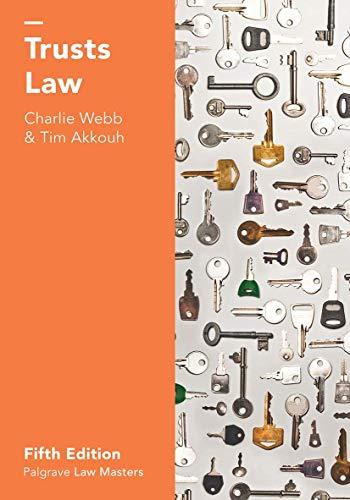Answered step by step
Verified Expert Solution
Question
1 Approved Answer
Sally Reed's petition to be administrator of her deceased son's estate was denied by a probate court in Idaho. At the time, Idaho law stated
Sally Reed's petition to be administrator of her deceased son's estate was denied by a probate court in Idaho. At the time, Idaho law stated that "males must be preferred to females" in appointing administrators of estates, the court appointed Cecil Reed, the father, as administrator of the estate. Sally Reed appealed the court's decision and challenged the law as unconstitutional, and the case, Reed v. Reed, eventually made it to the Supreme Court. Which of the following best encapsulates the result at the Supreme Court? Group of answer choices The Court overturned the Idaho law because it was an example of "the very kind of arbitrary legislative choice forbidden by the Equal Protection Clause." The Court affirmed the probate court's decision that the father was better positioned to serve as administrator of the estate because the Supreme Court, like all appellate court's, deferred to the trial court's determination of the facts of the case. The Court upheld the law because the law was "rationally related" to a "legitimate" government interest, but Justice Ruth Bader Ginsburg wrote a dissent in which she outlined the intermediate scrutiny test the Court later adopted in the Craig v. Boren. The Court agreed with Sally Reed and invalidated the Idaho law because it was "the kind of burden on access to courts" that seriously impinges a fundamental right and was, therefore, antithetical to the idea of due process of law
Step by Step Solution
There are 3 Steps involved in it
Step: 1

Get Instant Access to Expert-Tailored Solutions
See step-by-step solutions with expert insights and AI powered tools for academic success
Step: 2

Step: 3

Ace Your Homework with AI
Get the answers you need in no time with our AI-driven, step-by-step assistance
Get Started


